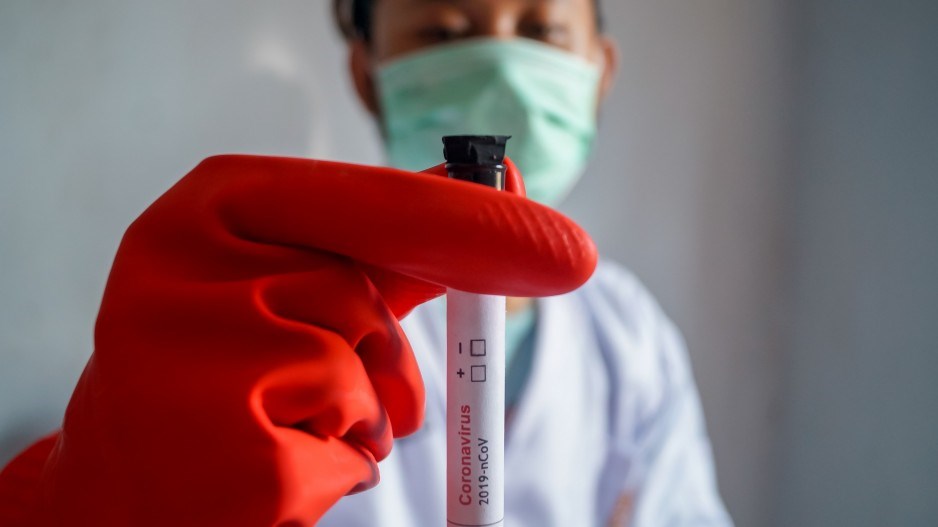B.C. health officials ended March 3 with an announcement that there are now 12 cases of the novel coronavirus COVID-19. In the morning of March 3, they announced the province's ninth case.
The new cases mean that the number of known cases jumped 50% on March 3, to 12 from eight. The proliferation made March 2 the day with the most new cases, and provincial health officer Bonnie Henry said earlier in the day that she expected the number of cases to rise.
The three new cases are two women and a man, who all had recently been to Iran. The case in the morning also involved a man who had been to Iran. All of the new patients are in isolation at home. The case identified in the morning was in the Fraser Health region. The new cases are in the Vancouver Coastal Health region.
"Case 10 is a man and in his 60s and case 11 is a woman," Henry said. "They have no connection to previous confirmed cases. Case 12 is a woman in her 30s and a close contact of the eighth case, previously reported on February 29. These new cases have been confirmed positive based on BC Centre for Disease Control testing. Four B.C. patients have now fully recovered, and the other individuals with COVID-19 are in isolation at home with support and monitoring from public health teams."
The world now has 92,861 known cases of the respiratory virus, and 3,162 deaths, according to John Hopkins University Whiting School of Engineering. The official count has grown by 546 people and 31 deaths in less than the last six hours and it is expected to keep rising. (For the latest update, click here)
No one has yet died in B.C. from the disease. South of the border in Washington State, however, there were nine deaths and 27 cases reported earlier today.
"I still believe it's very safe for us to travel back and forth across from Washington into Canada," Henry said. "Canadian Border Services Agency is doing screening at our land borders as well [as airports]. I have been watching obviously very closely and in contact with my colleagues in Washington State, and it is still very limited and they are doing extensive investigations to understand where the transmission patterns are in the U.S."
Henry said travel bans that forbid air travel to regions where there are outbreaks of the virus are not an effective way to guard against the disease, and she pointed at how the U.S. had put in place a ban on foreigners entering the country if they had been to mainland China within the previous two weeks, and the U.S. still found itself in a situation where its citizens started to become infected.
Instead, Henry urged people to take extra precautions such as not shaking hands with people, or kissing them in greetings. She reiterated the oft-cited prevention tactic of washing hands, although she added an analogy to underscore how rigorous that hand washing should be.
"Wash your hands like you've been chopping jalapeños and you need to change your contacts," she said.
B.C.'s first case of the coronavirus was reported on January 28, after having been detected a day earlier. The disease is thought to have started spreading in late December in a live-animal food market in Wuhan, China. More than 86.8% of the cases reported globally have been in mainland China although the number of new cases has started to grow faster outside of China than inside that country.
Countries such as South Korea, Iran and Italy are also places where large outbreaks have occurred.




